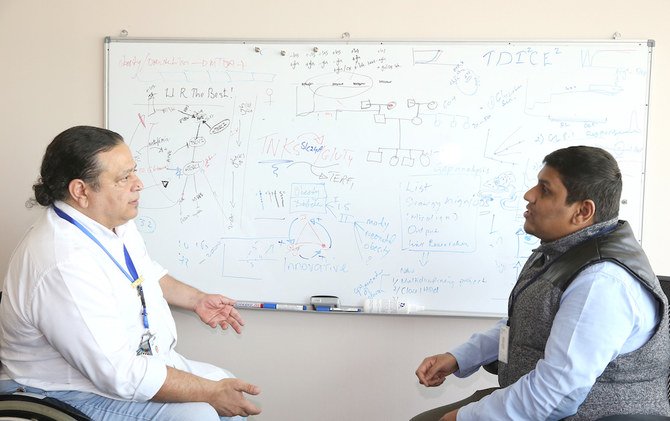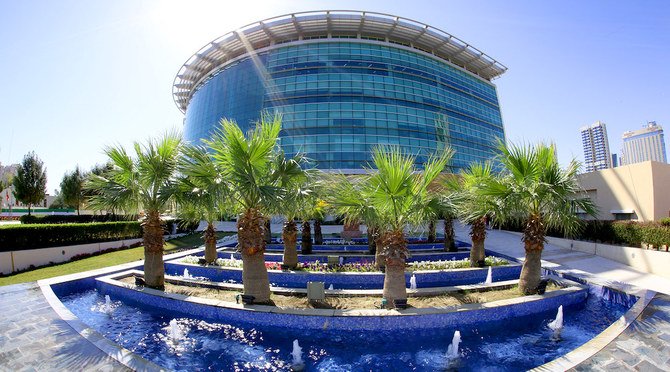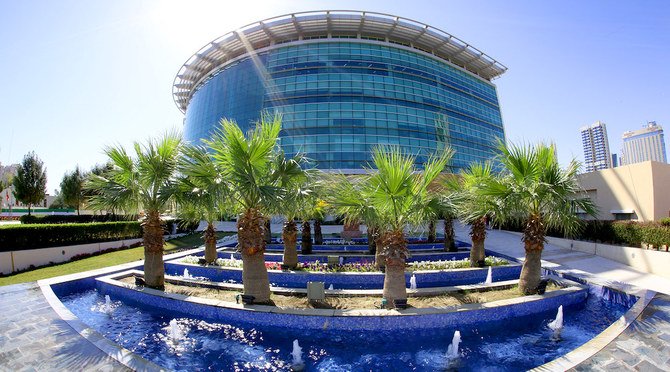



Sarah Glubb
LONDON: Researchers in Kuwait have identified a section of DNA that once helped nomadic inhabitants of the Arabian Peninsula survive the harsh conditions there, but now is believed to be partly responsible for high rates of diabetes and obesity across the Middle East.
The research suggests that lack of exercise and a bad diet are not the only reasons for the prevalence of metabolic disorders in the region — genetic factors also play a part.
The study, by the Dasman Diabetes Institute (DDI) in Kuwait, examined more than 600,000 genetic variations in the DNA of hundreds of Kuwaitis. The scientists found multiple areas of DNA associated with health problems, such as hypertension and diabetes, that had evolved over generations.
The findings, recently published in the Genome Biology and Evolution journal, lead the researchers to believe that a genetic adaption that helped the Kuwaitis’ ancestors survive as hunter gatherers in the extreme desert environment is now partly responsible for a health crisis in modern populations.
“The theory was that there must be something very different in the genetic makeup that protected (the ancestors) from the weather, a lack of food and made their metabolism extremely low,” said Prof. Fahd Al-Mulla, DDI’s chief scientific officer and senior author of the study.
[caption id="attachment_13757" align="alignnone" width="670"] Dasman Diabetes Institute (DDI) is a Kuwaiti-based medical research center which works to prevent and treat diabetes and related conditions in Kuwait through various research, training, education and health promotion programs. (Supplied)[/caption]
Dasman Diabetes Institute (DDI) is a Kuwaiti-based medical research center which works to prevent and treat diabetes and related conditions in Kuwait through various research, training, education and health promotion programs. (Supplied)[/caption]“This is fine if you live in hot weather and if you do not have a lot of food but this gene becomes a killer if you have plenty of food to eat, you sit in the air conditioning, and you change your environment.”
The genetic variations highlighted by the study were found in and around the TNKS gene, which is associated with hypertension, obesity and type 2 diabetes.
Kuwait has one of the highest rates of obesity in the world; about 40 percent of the population is overweight. Other Gulf countries are not far behind, and their populations are plagued by rising levels of associated disorders, including diabetes and hypertension.
While modern sedentary lifestyles are often blamed for this, and clearly are a factor, the study uncovers the detrimental effects of ancestral genetic adaptation on the health of present-day Kuwaitis.
“Our research spots the regions of the genome that might have induced active metabolism and hypertension in nomadic Kuwaiti forefathers, which may favor survival in harsh environments,” said Dr. Eaaswar Muthukrishna, a genetics and bioinformatics expert at DDI.
He added that the study was the first “comprehensive analysis to detect natural selection in the Arabian Peninsula’s population.”
Al-Mulla said the discovery was important not only for raising awareness of the health risks, but also to help identify vulnerable children and advise their parents on how to ensure they do not overeat and increase the chances of developing metabolic disorders.
Along with sounding a health alert for modern populations, the research also sheds light on migration and environmental changes in the region.
“The Arabian Peninsula has experienced several waves of migrations, despite its extreme and varying environmental conditions,” the authors of the study note. “And these inhabitants eventually adapted to the hot and dry environment.
“Archaeological evidence suggests the Arabian Peninsula played a key role during the dispersal of modern humans out of Africa….therefore, the resident populations have a long and complex evolutionary history.”
Most of the ancestors of modern-day Kuwaitis were early settlers that migrated from Saudi Arabia and depended on fishing, pearl diving and seafaring as their main sources of income.
“Our previous studies revealed that the genetic structure of the Kuwait population is heterogeneous (diverse), comprising three distinct ancestral genetic backgrounds that could be linked roughly to contemporary Saudi Arabian, Persian and Bedouin populations,” according to the study.
Muthukrishna said the team is expanding its study to examine Arabian populations in Oman, Yemen, and the UAE.
“We are analyzing those data sets to see what is the pattern that exists in the Arabian Peninsula,” he said, adding that the study, which is underway, will also dig deeper into the Saudi population.